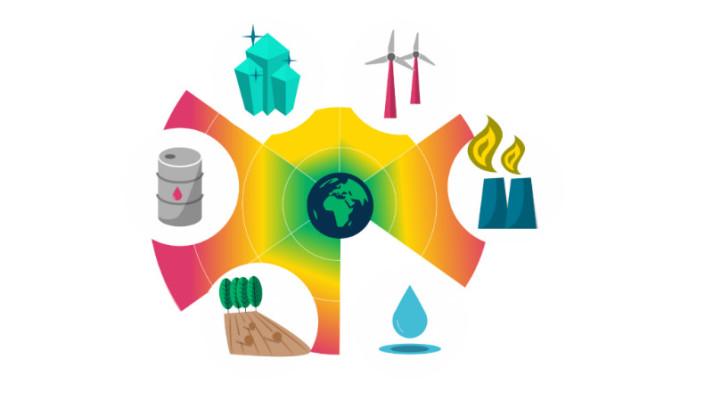Resource dependency crisis may set the scene for sufficiency measures
Although it has been long established that Europe's (over)consumption is driving environmental degradation globally, little has been done to address it. However, inflation, the Ukraine war, and unsustainable dependencies on resource imports could push for previously unthinkable ecological measures by policymakers, write Jean-Pierre Schweitzer and Bich Dao.
Heavy footprints
In a recently released webpage in collaboration with Friends of the Earth Europe and the European Youth Forum, the European Environmental Bureau explores the scale of the overconsumption crisis and how policymakers can address it.
The European Union's growth-based economy is driving the depletion of Earth's finite resources, pushing for non-stop extraction, production, consumption, and waste, at a speed much faster than Earth's resources and nature can regenerate. In fact, we would need 2.8 Earths if the global population adopted an average European lifestyle. Despite this, EU climate policies have failed to directly address the overconsumption epidemic, and have instead focused on fixing the problems caused by overconsumption, with yet more materials and resources.
Using automobiles as an example, instead of better public transport and biking infrastructure, we are on track to effectively replace dependency on fossil fuels with dependency on critical raw materials. Batteries for electric vehicles and energy storage would mean that the EU will need almost 60 times more lithium and 15 times more cobalt by 2050. In the case of lithium, this means yet more EU import dependence, with 100% reliance on Chile, USA, and Russia for supply.
Monitoring and targeting for better
Currently, there is a lack of proper indicators and targets when it comes to resource use reduction at the EU level - something that Members of European Parliament have formally called for in plenary and in three reports in 2021.
In a recent consultation process for the Commission's Circular Economy Monitoring Framework, the EEB called for the addition of key indicators on material footprint and on consumption footprint.
Moreover, the EEB called for a more operational usage of the framework, transforming it from a mere reporting tool to an 'action-triggering' dashboard that links to progressive objectives. Notably, these will be building towards binding targets at EU and national levels on headline indicators: material footprint reduction, the increase in the usage rate of circular material, waste generation decrease, food waste generation decrease, and the uptake of green public procurement.
The addition of material footprint and consumption footprint as official indicators to the EU's monitoring framework nevertheless represents a step towards establishing measures to reduce consumption and its impacts in absolute terms in the future.
Growing pain
While we need to set resource use reduction targets, overconsumption must be addressed through moving away from our growth-oriented economy and shift towards a wellbeing economy.
For decades, we have been holding up GDP as the main economic yardstick. This locks us into a mindset where any reform or change must be measured against past, current, or future economic growth. The environment, equality, and social cohesion have been regularly sacrificed for the sake of extra GDP.
Wellbeing economic models such as the doughnut economy prioritise our social foundations, ensuring the wellbeing of all within the planetary boundaries. Such models remind us that we need better indicators with a much broader set of goals to guide us through the main problems of our time and unleash the potential of environmental policies.
